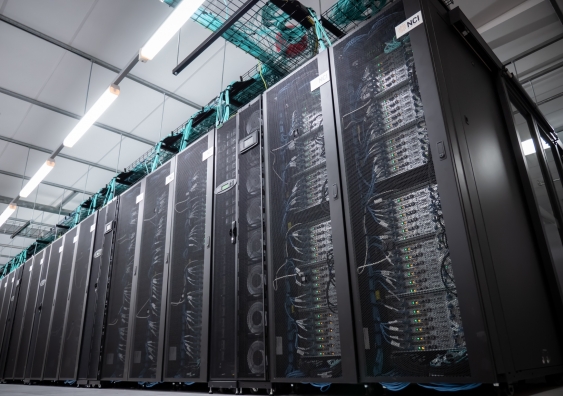UNSW researcher awarded 2020 Australasian Leadership Computing Grant
A UNSW researcher has been awarded the largest compute grant in Australian history.
A UNSW researcher has been awarded the largest compute grant in Australian history.

Yolande Hutchinson
UNSW Sydney External Engagement
0420 845 023
y.hutchinson@unsw.edu.au
Professor Evatt Hawkes from UNSW Engineering has received a grant of 50 million units of compute time on the National Computational Infrastructure’s (NCI) newest supercomputer, Gadi. This represents the largest compute grant in Australian history.
Professor Hawkes is one of four researchers to receive an inaugural Australasian Leadership Computing Grant (ALCG). The four researchers have been awarded a total of almost 180 million units of compute time, which is equivalent to one single computer doing constant calculations for 20,000 years.
Professor Hawkes’ project will use the compute time to investigate the intricate details of combustion in a new design of gas turbine combustor and will produce some of the highest resolution simulations of combustion ever created.
“This grant will enable us to deliver significant new insights into combustion processes in axially staged gas turbine combustion systems. These turbines are incredibly efficient and offer in comparison to previous systems much greater operational flexibility, including flexibility to burn fuels having high reactivities such as hydrogen,” Professor Hawkes said.
“My project team is very excited to receive this grant, which will enable among the largest simulations of combustion ever performed. It will really allow us to look in unprecedented detail at what is going on inside the combustor. The information we will provide will be very useful in guiding design of future systems that offer low emissions and a robust and efficient end-use option for renewable hydrogen fuel.”
Since detailed measurements inside gas turbine combustion chambers are not yet possible, simulations are currently the best path to understanding the complex interactions of combustion and turbulence that occur in these systems.
Supercomputing is required since combustion in these systems occurs in highly turbulent fluids, with length and timescales spanning an enormous dynamic range. In the direct numerical simulations conducted by Professor Hawkes’ team, the small scales need to be directly resolved, which leads to significant computational effort.
NCI Director Professor Sean Smith said the ALCG was designed to identify meritorious research projects with demonstrated ability to use high performance computing systems effectively at scale.
“These grants will supercharge Australian research with unprecedented access to the nation’s fastest supercomputer,” Professor Smith said.
Professor Stephen Foster, Acting Dean of Engineering at UNSW Sydney, said: “Professor Hawkes is a talented researcher and a leader in his field of computational fluid dynamics using high performance computing, including low emissions energy technology. A computing grant of this size has never been possible in Australia before and I look forward to seeing the outcomes from his project on low-emissions gas turbine systems.”